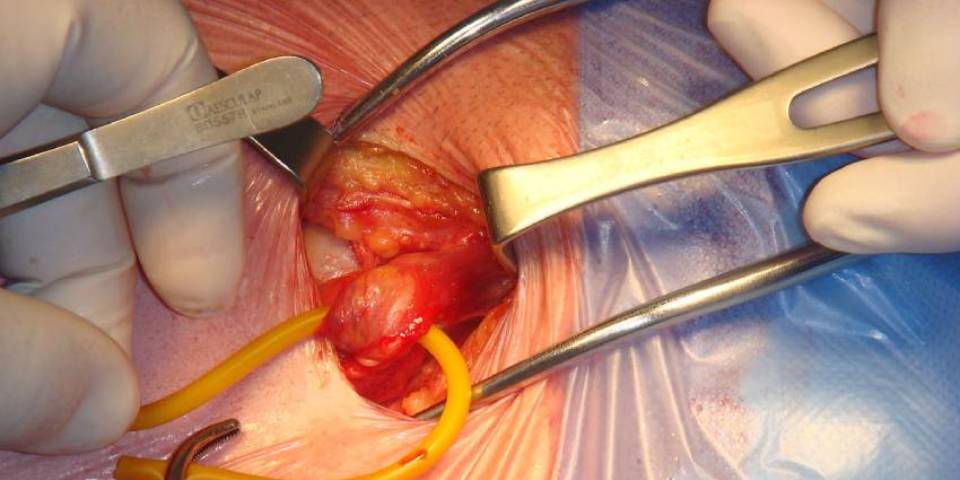Hernias occur when an organ or tissue protrudes through a weak spot in the muscle or connective tissue. Despite successful repair surgery, there’s trouble with recurrence. Understanding its causes and prevention is pivotal. In this guide, with expert insights from Dr. Bhushan Chittawadgi, an expert hernia specialist in Bangalore, we’ll explore implicit causes, symptoms, and strategies to prevent recurrence. By adopting proactive measures, individuals can minimize risk and enjoy improved long-term health under Dr. Chittawadgi’s guidance.
What Might Cause Hernia to Recur?
Dr. Bhushan Chittawadgi explains that hernias can occasionally return after surgical repair, causing more discomfort and needing additional treatment. Knowing what might cause a hernia to reoccur can help in taking preventative measures and managing the condition effectively. Here are some of the primary reasons why hernias might come back:
- Lacking Initial Repair: If the first hernia repair surgery didn’t adequately support the weakened area or if the surgical way was bloodied, the hernia may return.
- Excessive Strain: Activities that place overdue pressure on the abdominal muscles, such as heavy lifting, patient coughing, or straining during bowel movements, can result in the recurrence of a hernia by putting pressure on the weakened area.
- Obesity; Being fat or fat can increase the threat of hernia recurrence. The redundant weight exerts fresh pressure on the abdominal muscles, making it more likely for the hernia to recur.
- Infection: Surgical point infections can compromise the integrity of the repair spot, weakening it and making it more susceptible to hernia recurrence.
- Genetic Predisposition: Some people may have a genetic predilection to weakened connective napkins, making them more susceptible to developing hernias and witnessing recurrences.
- Chronic Conditions: Certain habitual conditions, similar to chronic obstructive pulmonary disease( COPD), habitual constipation, or urinary retention, can increase intra-abdominal pressure, contributing to the recurrence of a hernia.
- Smoking: Smoking can impair the body’s capability to heal rightly by reducing blood flow to napkins. Smokers may have an increased threat of hernia recurrence compared to non-smokers.
- Poor Nutrition: lacking intake of essential nutrients can vitiate the body’s capability to repair tissues properly, adding the liability of hernia recurrence.
By addressing these threat factors and adopting preventative measures, individuals can reduce their chances of experiencing hernia recurrence and ameliorate their overall outcomes after hernia repair surgery.
Symptoms of a recurrent hernia include the following:
- Visible Bulge: A conspicuous lump, especially when standing or straining.
- Pain or Discomfort: Aching or discomfort, especially during exertion.
- Swelling: Localized swelling in the stomach or groin.
- Changes in Abdomen: Changed appearance due to tissue swell.
- Nausea or Vomiting: If the hernia becomes trapped, causing bowel inhibition.
- Discomfort with Movement: Pain during bending, lifting, or coughing.
It’s important to note that not all recurrent hernias cause immediate symptoms. Some may be asymptomatic initially and only become noticeable as the hernia grows or complications arise. If you suspect a recurrent hernia, seek evaluation and guidance from Dr. Bhushan or another healthcare professional promptly.
How to Prevent Hernia Recurrence?
- Follow Post-Surgery Guidelines: Adhere strictly to your surgeon’s instructions regarding activity limitations and wound care. Avoid emphatic activities until you’re completely healed to prevent strain on the surgical spot.
- Maintain a Healthy Weight:Achieving and maintaining a healthy weight reduces the pressure on your abdominal muscles and decreases the threat of hernia recurrence. A balanced diet and regular exercise can support achieving this goal.
- Strengthen Abdominal Muscles: Engage in exercises specially targeting gut muscles to toughen your abdominal wall. Focus on exercises like planks, pelvic tilts, and gentle abdominal crunches. Avoid heavy lifting and high-impact exercise that can strain the area and potentially cause hernia recurrence.
- Quit Smoking: Smoking negatively impacts healing and increases the threat of complications after surgery. Quitting smoking improves common health and enhances the body’s capability to cure effectively.
- Manage habitual Conditions: Effectively handle habitual conditions similar to chronic cough, constipation, or urinary effects, as these can boost intra-abdominal pressure and strain the repaired area. Follow your healthcare provider’s recommendations for treatment and lifestyle adaptations.
- Good Nutrition: Maintain a right diet rich in vitamins, minerals, and protein. Proper nutrition supports tissue repair and overall health, abetting in the recovery process and reducing the trouble of complications.
As per, Dr Bhushan integrating these strategies into your day-to-day routine, you can significantly reduce the liability of hernia recurrence and promote better long-term health outcomes. Effective hernia management and prevention of recurrence require expert guidance. Dr. Bhushan Chittawadgi offers all types of hernia treatment in Bangalore, supplying technical knowledge and personalized care to support patients achieve long- tenure health. By following his recommendations, you can significantly reduce the threat of hernia recurrence and enhance your altogether well- being. Take the first step towards hernia prevention by booking an appointment with Dr. Bhushan Chittawadgi today. With his experience and commitment to patient care, you can trust you are receiving the best workable treatment.

